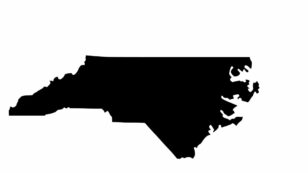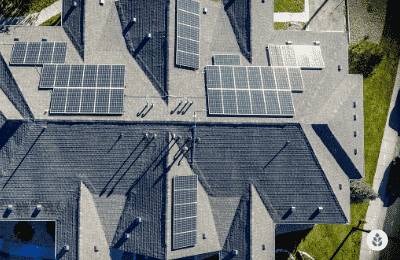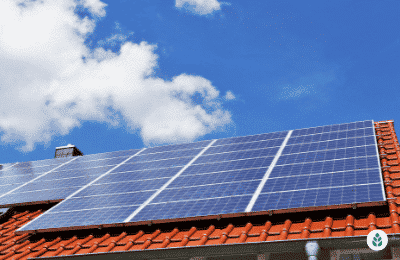 Reviews
Reviews
North Carolina Solar Incentives (Rebates, Tax Credits & More in 2024)
4In this North Carolina solar incentives guide, we will answer:
- What solar incentives are available for North Carolinians in 2022?
- How much can solar incentives and rebates save when I go solar in North Carolina?
- How do I apply for each solar incentive in North Carolina?
Disclaimer: This article is for informational purposes only. It should not be relied on for and is not intended to provide accounting, legal or tax advice.
Each product and or company featured here has been independently selected by the writer. You can learn more about our review methodology here. If you make a purchase using the links included, we may earn commission.
Do North Carolina Solar Incentives Make It Affordable for Homeowners to Go Solar?
In North Carolina, the average cost of a residential solar system is $3.21 per watt — significantly lower than the national average of $3.33 per watt.
However, North Carolina’s solar incentives can help you save even more when you go solar. For starters, all North Carolina residents are eligible for the 30% federal solar tax credit on their tax returns.
NC homeowners can also benefit from statewide property tax exemptions, renewable energy financing programs and net metering.

Blue Raven Solar

Regional Service
Average cost
Pros
- Industry-leading in-house financing
- Competitive pricing
- Excellent reputation
Cons
- Doesn't offer solar batteries (coming 2022)

Blue Raven Solar

Regional Service
Average cost
Pros
- Industry-leading in-house financing
- Competitive pricing
- Excellent reputation
Cons
- Doesn't offer solar batteries (coming 2022)
Here are some of the top solar incentives available to North Carolinians:
| Solar Incentives in North Carolina | Incentive Type | Description | Occurrence | Estimated Amount You Can Receive |
| Federal Solar Investment Tax Credit (ITC) | Federal | U.S. homeowners can receive 30% of the cost of their solar panel systems as a credit on their federal tax returns | Applies to your federal tax returns, and will roll over for up to 5 years | On average, $10,112 in NC |
| Property Tax Abatement for Solar Electric Systems | State | North Carolina does not tax you for the increase in property value realized by installing photovoltaic (PV) solar panels | Exempted annually on tax returns | N/A |
| Financing Program for Renewable Energy and Energy Efficiency | State | North Carolina has a law that enables revolving loan programs from cities and counties, with a maximum interest rate of 8% and a maximum term of 20 years | Applies to monthly payments for up to 20 years | Depends on your interest rate |
| North Carolina Net Metering Policy | State | Surplus electricity from your home solar system is credited at the retail price on your next electric bill | Monthly on your electric bill | Up to the full cost of your electric bill each month (not including fixed customer charges or the Renewable Energy Portfolio Standard charge) |
| Local Incentives | Local | Additional incentives may be available from your county, city or utility company, so be sure to consult your local city and county government and utility websites | Varies | Varies |
What Do North Carolinians Need to Know About the Federal Solar Tax Credit?
The federal solar tax credit (ITC) is not a North Carolina incentive, strictly speaking, since you can claim it anywhere in the U.S. However, we mention this benefit here because you can combine it with local incentives.
The average cost of a solar panel system in North Carolina is $33,705 before the federal solar tax credit, and $23,594 after the tax credit is applied. That’s a potential savings of $10,112!
- If you install a solar power system before the end of 2032, you can claim 30% of the total cost of installation as a federal tax credit
- The benefit will remain available in 2033, but it will be reduced to 26%
- The credit will decrease again to 22% in 2034
- The tax credit will be phased out in 2035 unless it is renewed by Congress
How to Claim the Federal ITC in North Carolina
You will claim your Federal ITC credit on your annual federal tax return. If you are filing your taxes yourself, here’s how to do it:
- Download and fill out IRS Form 5695. You’ll write in the cost of your applicable solar installation on line one and calculate your credit on lines 6a and 6b. If you need help, a CPA or your solar installer should be able to help you.
- Fill out your Schedule 3 on IRS Form 1040 using the information calculated on line 15 of your 5695 form.
For more detailed information on how to apply for the Federal ITC, visit the IRS.gov website. We highly recommend consulting with a tax expert and your solar panel company when applying for the solar tax credit.
EcoWatch’s Opinion on the Federal ITC in North Carolina
The Federal ITC is easily the largest solar incentive available to North Carolinians, at 30% of the total cost of your solar system.
However, you will only realize the full benefits of the ITC if you expect to owe several thousand dollars in federal taxes over the next five years. After five years, the tax credit will no longer roll over.
We’ll go into detail why we believe solar batteries are going to be the norm — if not totally necessary — in North Carolina in the future. Luckily, the ITC applies to solar batteries, as well as panels and other equipment. For the typical $10,000 to $20,000 battery installation cost, the ITC could effectively save an additional $3,300 to $6,600 if you install batteries as well.
Property Tax Abatement for Solar Electric Systems in North Carolina
North Carolina has offered a property tax exemption for solar panels and solar thermal electric systems since 2008. These systems increase the value of your property, like any other home upgrade, but NC does not tax you for that increase.
For example, if solar panels increase the value of a home from $270,000 to $300,000, the owner will still be taxed for a $270,000 home. Given North Carolina’s property tax rate of 0.7% and the average system cost of 33,705, that’s a potential annual savings of $235. Over the 20 years your system is expected to hold value, that’s a total of $4,718. Actual savings will be lower because of system depreciation, but this is still substantial.
This tax incentive is also available for solar power systems owned by commercial, industrial and agricultural energy users. However, in these cases, the property tax exemption applies for 80% of the system’s value, instead of the 100% exemption available for homeowners.
How to Claim Property Tax Abatement for Solar Electric Systems in North Carolina
Non-business personal properties do not require an application to claim an exemption or exclusion on property taxes in North Carolina. This also applies to government-owned properties and burial properties.1
If your property does not fall under these categories, you will still need to file for a property tax exemption on your solar panel system in North Carolina. You can do this by filling out and submitting the AV-10 form through the North Carolina Department of Revenue (NCDOR).
EcoWatch’s Opinion on Property Tax Abatement for Solar Electric Systems in NC
North Carolina’s 100% property tax exemption on residential solar panel systems is great news for homeowners. In states without this perk, the increased property taxes is a downside to going solar and cuts into your savings. This perk helps maximize savings on utility bills in North Carolina and legitimizes going solar even more for homeowners.
However, any solar panel systems connected to a business or used to generate income are only eligible for an 80% property tax exemption.2
Financing Program for Renewable Energy and Energy Efficiency in North Carolina
In North Carolina, city and county governments are legally authorized to offer low-interest loans for solar PV systems in homes and businesses. The loan program also covers other renewable energy technologies like geothermal heat pumps, wind turbines and biomass power.
The maximum interest rate of these revolving loans is 8%, and the maximum term is 20 years. This gives you the option of installing a solar energy system with loaned capital, then using your electricity savings to pay it back over time. This means your out-of-pocket cost is reduced to zero, and your solar power system can cover its own cost with the savings achieved.7
While accessible financing programs are great in any context, we expect them to be even more valuable in the coming years than ever before. As we recently saw in California, net metering credit rates are dropping across the country, and we believe it’s only a matter of time before the perk disappears entirely. When that happens, solar batteries will be the only option for maximizing savings and returns, so they’ll be a necessity.
Batteries add between $10,000 and $20,000 to your system costs, which is up to 33% above and beyond what you’d otherwise pay for solar in North Carolina. The added cost will make cash purchases less viable in general, so loans like this will be some of the only ways customers can afford to convert to clean energy.
How to Take Advantage of North Carolina’s Financing Program for Renewable Energy and Energy Efficiency
The North Carolina Clean Energy Technology Center advises NC residents to contact their local government to learn about renewable energy and energy efficiency financing in your county or city.8
EcoWatch’s Opinion on North Carolina’s Financing Program for Renewable Energy and Energy Efficiency
Guaranteed lower interest rates on solar loans can financially assist homeowners who cannot afford a solar panel system upfront. This will be even more impactful in the future if and when net metering rates decline and batteries become a requirement for savings.
Unfortunately, the North Carolina law is enacted through local governments, and is not a singular statewide program. Therefore, in order to learn more about your financing options, you may have to jump through some hoops when contacting your local government.
Watch Below: Learn Why North Carolina Is the Perfect State To Go Solar
Net Metering in North Carolina
North Carolina offers net metering for solar power systems of up to 1,000 kW capacity, which covers all residential systems and many industrial and commercial solar systems. However, leased solar systems have a much lower limit for net metering: 20 kW or 100% of estimated demand, whichever is less.
Surplus electricity from your solar panels is credited on your next electric bill. Systems installed prior to October 1, 2024 receive the full retail value for each exported kWh, while customers who install solar after that will get a less beneficial avoided cost rate. Both are still great and will save you money over time, but the retail rate is far better. In our opinion, this is the beginning of the end for net metering in North Carolina, which means batteries are soon to become more prevalent and necessary to see the average state savings of $24,794 from converting to solar.
Your accumulated balance expires at the start of the summer billing period. Having an optimally sized solar power system is recommended, since an oversized system generates electricity that you can never get credit for on your power bills.
How to Enroll in Net Metering in North Carolina
Your solar installer can help you fill out paperwork and enroll in North Carolina’s net metering program. You apply for net metering in North Carolina by:
- Requesting an interconnection service form from your utility company for your renewable energy equipment. This will allow your utility company to see how much renewable energy you are generating and determine your credit each month.
- Completing the application form and submitting it for your utility company to review and approve.
- Connecting your system to your utility company’s system. This is the last step of the process after the utility company has approved your application. Your solar installer and the electric company will guide you through next steps.
Learn more about North Carolina’s net metering program at publicstaff.nc.gov.
EcoWatch’s Opinion on Net Metering in North Carolina
North Carolina has an excellent net metering program that credits the avoided cost value of surplus energy your system generates to your next electric bill (for systems installed after October 1, 2024). Just be aware that any accumulated credits that go unused will expire on June 1 of each year so they won’t be available to address higher energy demand through the summer months.
Overall, North Carolina’s net metering program is generous and easy to apply for as long as your utility company and solar installer are helpful and communicative.
Local Solar Incentives in North Carolina
We have listed the main solar incentives available in North Carolina, but keep in mind that additional benefits may be available depending on where you live.
For example, the City of Asheville offers building permit rebates for homeowners and businesses who use solar panels and other green energy technologies. This North Carolina solar rebate changes depending on the technology used — in the case of solar panels, there is a $50 rebate on your building permit application.
See also: Calculate the costs and savings you can get from installing solar panels
What Do North Carolina Residents Need to Know About SRECs?
An SREC is a Solar Renewable Energy Certificate. SRECs are an instrument that allows residents in a state to make money off the electricity that their solar panels generate.
Many states (including North Carolina) have renewable portfolio standards (RPS) that require utility companies to generate a certain percentage of their electricity from renewable energy sources.
These utility companies can either meet these goals by generating their own renewable energy (like building their own solar farms), or by purchasing renewable energy credits (SRECs).
As a homeowner with solar, you can sell SRECs to utility companies to help them meet RPS goals. The amount of SRECs you can earn depends on how much energy your solar panels generate each year.
North Carolina’s version of SRECs is called NC-RETS, or The North Carolina Renewable Energy Tracking System. It distributes and keeps track of renewable energy and energy efficiency certificates to comply with NC’s RPS.9
Are SRECs Worth it in North Carolina?
Talk with your solar provider about whether or not SRECs are a good option for you. North Carolina does not have an ambitious renewable portfolio standard, and a large nationwide supply of SRECs may mean that the value of SRECs is low.
North Carolina accepts SREC registrations from any state, meaning that solar panel systems in any state can help fulfill NC’s RPS requirements. This further lowers the value of SRECs in North Carolina.10
What’s the Near-Term Outlook for More Incentives in North Carolina?
The North Carolina government used to offer a 35% state tax credit on solar panel installations (in addition to the federal solar tax credit). That incentive expired in December 2015, but new legislation in 2022 proposed a renewal.11
A 2016 report from Raleigh-based nonprofit RTI International concluded that $1.64 of revenue was generated for state and local governments for every $1 of the tax credit claimed.12 This suggests that bringing the NC solar tax credit back could be good for the local economy of North Carolina.
As of November 2022, the NC solar tax credit has not been renewed.
If there are going to be changes in the near future, we’d expect them to be negative ones for net metering. This is a shame, but it seems that many states are following this trend. This will make batteries more valuable, but it will increase installation costs from $33,705 to between $43,000 and $53,000 before incentives.
The cost information presented in this article is derived from a comprehensive analysis, incorporating data from multiple industry sources. The average cost per watt per state was calculated based on figures from Consumer Affairs, Energy Sage, and Berkeley Lab’s Electricity Markets & Policy Department. Additionally, monthly energy consumption and the average monthly cost of electricity were sourced from the U.S. Energy Information Administration, ensuring a well-rounded and accurate representation of the information presented.
FAQs: North Carolina Solar Incentives
Legislation proposed in May 2022 aimed to renew the 35% solar credit program in North Carolina that expired in 2015. However, as of November 2022, this program has not been brought back.13
North Carolina residents can still take advantage of the 30% federal solar tax credit. The credit was extended through at least 2032 with the passing of the inflation reduction act in August 2022.14
The Duke Energy Solar Rebate program expired in 2022 and is no longer accepting applications. However, North Carolinians can still take advantage of the federal solar tax credit, statewide net metering, the statewide financing program for renewable energy and any available local incentives. Plus, you can get on the waitlist for the solar rebate from Duke Energy.
Yes, your property taxes will increase a little after going solar. North Carolina offers an 80% property tax exemption for residential solar systems. Your home becomes more valuable, but your property taxes will only go up based on 20% of your system’s value. This should equate to less than a few hundred dollars a year.
It depends on your unique situation, but in general, it’s worth going solar in North Carolina.
The state offers a combination of incentives that reduce your ownership costs and decent sunshine that makes solar panels productive. Solar panels last for more than 25 years if they’re of high quality, and you can achieve a payback period of fewer than 10 years in North Carolina.
Top Solar Installer in North Carolina Cities
Comparing authorized solar partners
-
- Industry-leading in-house financing
- Competitive pricing
- Excellent reputation
- Doesn't offer solar batteries (coming 2022)
A+Best Solar Financing2014Trina Solar, Canadian Solar, SolarEdge, Silfab, SunPower25-year manufacturer warranty; 10-year workmanship warranty, 2-year production guarantee
Having trouble deciding? Click below and use our process to receive multiple quotes instead:

 233k
233k  41k
41k  Subscribe
Subscribe 






